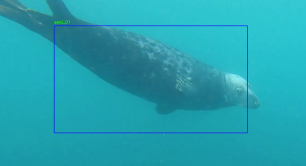The Editor’s Post: AI for good: Hype or hope?

An emerging generation of impact entrepreneurs are using AI for positive impact – but in a fast-moving field, they will have to be agile to survive while avoiding mission-drift. Also this week: will B Lab's new standards woo back the B Corp leavers? This week’s view from the Pioneers Post newsroom.
We call them “social innovators” for a reason: impact entrepreneurs are known to harness innovation to tackle social and environmental issues. So it is not surprising to see them develop solutions using the most transformational new technology of recent times: artificial intelligence.
In our Earth Fixers feature this week, we explore the emerging generation of startups using AI for positive impact. The phenomenon is growing – data shows it, investors are witnessing it – with new AI businesses focusing on topics as varied as tracking underwater creatures, using sound to measure biodiversity or optimising sugar cane crops with machine learning. The range of ideas is fascinating, and it’s one of the perks of my job to be able to interview such brilliant entrepreneurial minds.
But AI is completely unknown territory. First when it comes to ethics: we already know of AI’s huge negative impacts, but its power to do good could offset them – will that be enough? Then there are the many risks of evolving in a young, ever-changing field where nothing is certain. Competition is fierce, regulation changing fast. Fundraising could go either way – VC investors are currently nuts about AI, but they’re turning their backs on impact: what does that mean for those startups at the intersection of the two? Surviving as an AI impact startup will require a lot of agility, in particular to avoid mission-drift.
As Paul Miller from impact VC firm Bethnal Green Ventures points out: whatever the tech, entrepreneurs need to make sure they fully understand it, including its unintended consequences. Only then will they be able to seize the power of AI to create transformational impact.
A new era for B Corp?
The much-anticipated new B Corp standards were published this week, and it’s explicit: their aim is to “raise the bar” for businesses worldwide. B Lab, the nonprofit that certifies B Corps, has faced years of criticism over the way it assesses businesses; the new standards seek to address what some have described as major flaws in its certification system by completely redesigning the process.
In particular, the new method is getting rid of a cumulative points system that enabled companies to balance poor performing areas with better ones – they now have to meet requirements across seven topics to pass; companies are required to disclose and tackle negative impacts, and businesses need to consider their impact on their whole supply chain, notably looking at human rights and environment.
With those more stringent criteria, it is likely that fewer businesses will achieve B Corp certification – and it even raises the question of whether existing B Corps will manage to re-certify (which they are required to do every three years).
Another question is whether the new standards will bring back those companies that have decided to relinquish their certification because rules were too weak.
In recent years we have seen various companies decide to “de-certify” (and shout about it) in protest against standards that they said were too lenient and allowed some companies with questionable practices to sport the B Corp logo. (A recent example is soap-maker Dr Bronner.)
What I found interesting was to see several businesses leaving the community for that reason in recent weeks, despite the fact that the new standards – widely expected to be stricter – were to be released imminently. Did they not want to give B Corp another chance? Did they want to increase the pressure on B Lab to toughen the new rules? Was it a form of protest that things weren’t moving fast enough, far enough? Or was it just an opportunity to make people talk about them?
Each of those businesses will have its own motivations. In any case B Lab makes it clear it listened to criticism and acted upon it. Will the departing companies be satisfied with it and come back? And will it attract new ones to the B Corp fold? We will be following the B Corps journey closely in the coming months.
Top stories this week
B Corp launches new standards as ‘complete reimagining’ of certification of businesses for good
Making waves: The new generation of startups using AI to save the planet
How impact investors can support democracy to thrive
The Impact World this Week: 10 April 2025
Top image: Freepik.
|
|





